local report
If Streets Around the World
Unite Hand in Hand
It Will Turn Into a Tremendous Power
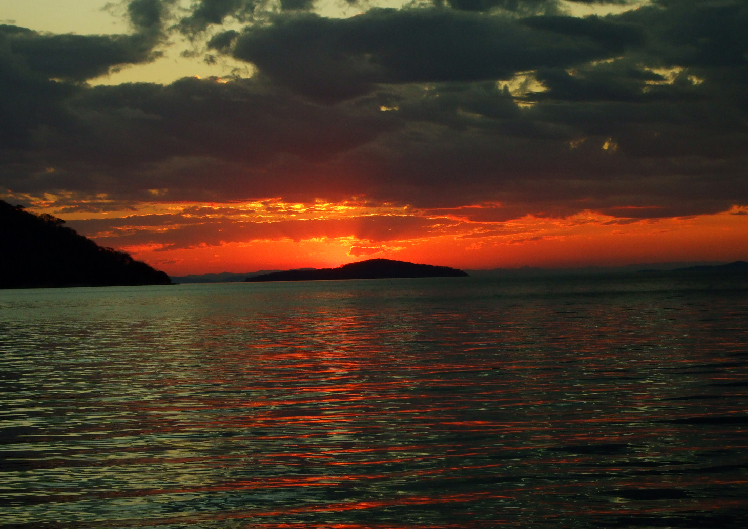
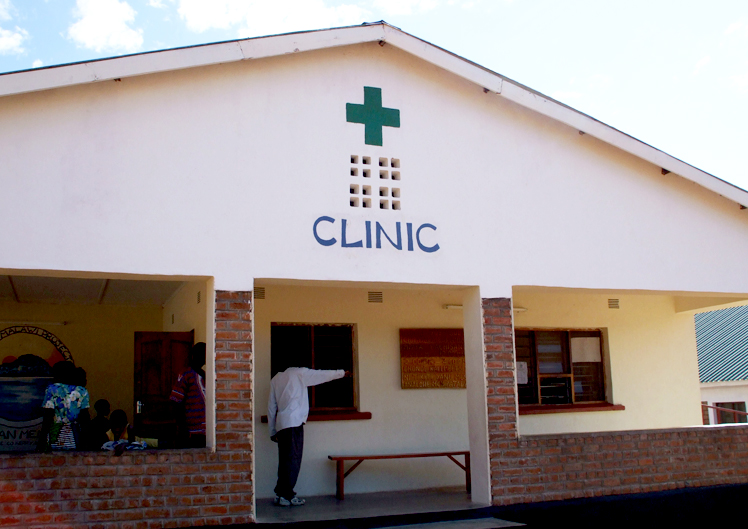
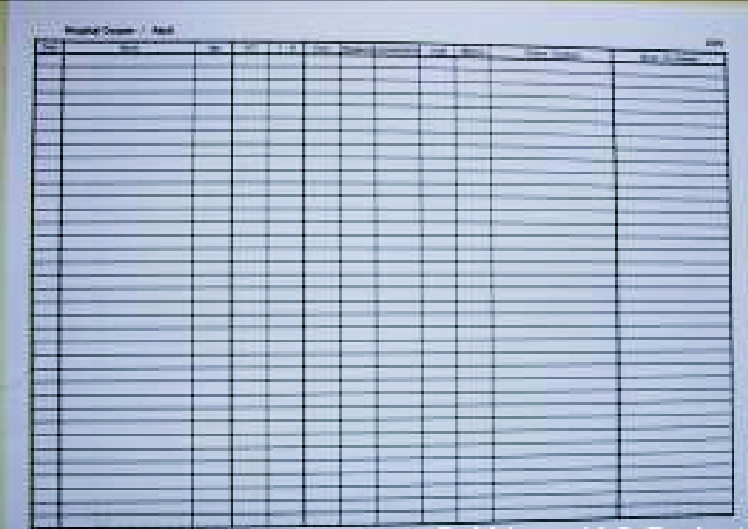
In alliance with: Billy Riordan Memorial Clinic
Free Transport Coupons distributed: Adults x 500; Children x 1000
Support Supplies: Rice (500g) x 25 bags; Maze Flour (1kg) x 25 bags;
Condoms x 500
The village is located at the shore of Lake Malawi which is designated as a World Heritage Site and known as the cheapest place to achieve scuba diving license, visited by tons of tourists from western countries. Needless to say, they have lots of lodgings to accommodate their visitors, sanitary state is well compared to neighboring villages, so in a glance, it is difficult to see the problems this village suffers from. But once you step inside the village, you would immediately notice the harsh poverty people live in, and they have an extremely high rate of HIV/AIDS which goes well over 20% of its population. Our support for Chembe is been done in alliance with Billy Riordan Memorial Clinic since the start in 2006, paying them a fund for free medications to 500 adults (MWK150x500=MWK75,000) and 1000 children (MWK50x1000=MWK50,000) who are in fatal poverty and are HIV positive.
We’ve made countless discussions with Dr. Janet at the Clinic to structure a system that would give as less burden to the Clinic as possible, which is the system we have now. We were initially using coupons for each patient to see the doctor, but it’s been systemized now with the sheet (left photo), where the Clinic’s staff fills in the condition of the patient at the reception, and the doctors fill in the name of illness after actually seeing each patient.The Clinic directly administers the system itself, and since the Clinic is also run by an NGO from abroad just like us, they are flexible in handling various accidents/problems. Most of all, because we both have similar aims, we are able to mutually understand each other, which makes things extremely easier for us to perform our support activities for this village. We’ve even been thanked by the villagers saying “since JAG started to support our village poor people are now able to see the doctors, and things have changed a lot.”
Nevertheless, even if people are able to get medications for their illness, poor people are having extreme difficulties getting jobs to make their living, we actually received a request from the villagers for trainings and technical supports to enable women with HIV/AIDS to make their own living. We plan to commence our “independence support” upon our next visit, starting off by teaching how to make used-fabric slippers (slippers out of used-clothes) to the women with HIV/AIDS.
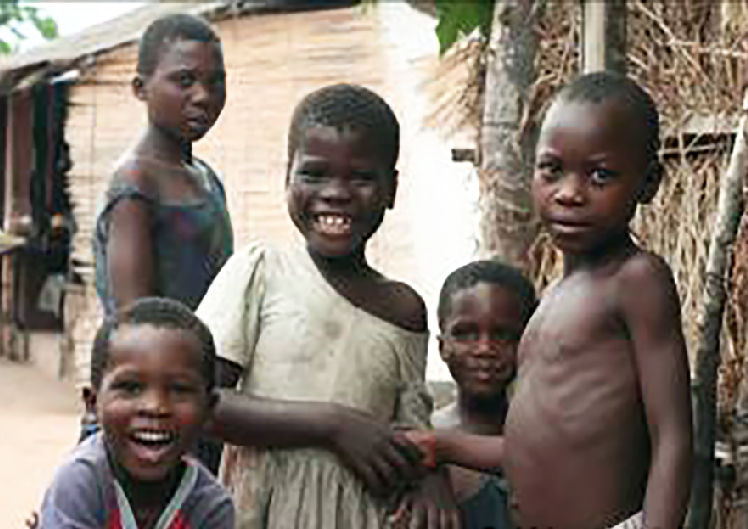
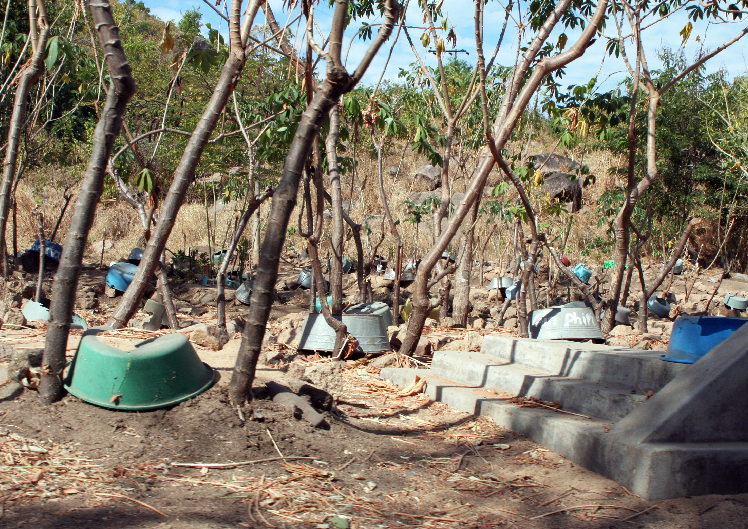
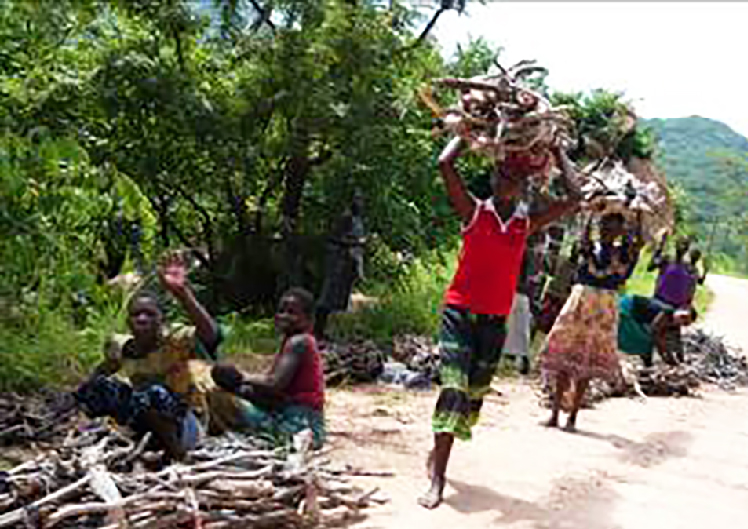
Sponsored free VCT (blood test for HIV/AIDS) / 1 day
Result of VCT: 7 people out of 73 examinee (=9%) were newly found to be HIV positive Msaka ⇔ Monkey Bay (hospital) = MWK300
Free Transport Coupons distributed: 440
Support Supplies: Condoms x approx. 500
This village is only 10km away from Chembe, also located at the shore of Lake Malawi. Chembe has a lot of lodgings as well as tourists visiting them, but this village has no lodging, and no tourists. They have no hospital, and no radio waves that a cell phone could possible catch. Obviously, no phone either. They do have electricity, but for poor villagers, it is impossible to personally purchase an electricity line and install electricity from the pole to their houses.We’ve been sponsoring free VCTs (blood test for HIV/AIDS) in this village since July 2007. The first VCT in 2007 found 26.1% of the examinees to be HIV positive, and we immediately begun an urgent support of distributing free transport coupons. This time was the 3rd VCT in this village. Did our support made any change to the villagers consciousness and attitudes to HIV/AIDS…? We headed for Msaka filled with anxiety.
What surprised us most as we stepped into the village this time was to see the whole place (which had been filled with garbage) to be extremely clean like some place else. People’s minds have definitely changed. There still is an unclean place in the village, but people have started to see it as a problem, and are even holding discussions with the shops in that area. Up until our last visit, no matter how seriously we explained that they must clean their village, the villagers only smiled back. Now, they are telling us “people of the market don’t clean the place and leave all garbage. Can you talk with them?” Couldn’t believe it, to be honest.This time was the 3rd VCT in this village. Did our support made any change to the villagers consciousness and attitudes to HIV/AIDS…? We headed for Msaka filled with anxiety.We’ve been sponsoring free VCTs (blood test for HIV/AIDS) in this village since July 2007. The first VCT in 2007 found 26.1% of the examinees to be HIV positive, and we immediately begun an urgent support of distributing free transport coupons. This time was the 3rd VCT in this village. Did our support made any change to the villagers consciousness and attitudes to HIV/AIDS…? We headed for Msaka filled with anxiety.
What surprised us most as we stepped into the village this time was to see the whole place (which had been filled with garbage) to be extremely clean like some place else. People’s minds have definitely changed. There still is an unclean place in the village, but people have started to see it as a problem, and are even holding discussions with the shops in that area. Up until our last visit, no matter how seriously we explained that they must clean their village, the villagers only smiled back. Now, they are telling us “people of the market don’t clean the place and leave all garbage. Can you talk with them?” Couldn’t believe it, to be honest.
VCT as well. Upon the last VCT we had in March 2008, examinees were mostly students, and over-20 adults didn’t show up much. Volunteer staffs said “we weren’t able to inform the villagers well in advance…,” but I felt that the villagers may not be considering the whole thing seriously enough.
That’s why we decided to do the VCT for only 1 day this time, but so many people came to take VCT from morning tile end, there were a lot of them that couldn’t make it on time as well. Some even came up to us and said: “1 day is not enough. Please do VCT 1 more day.”
FYI, the reason why the village became so clean was, at first, it was simply because we kept on nagging them to clean the place, but as they did, diseases such as Malaria and Cholera decreased, good things started to happen, which eventually motivated the whole village to clean the place.
The result of VCT this time turned out to be unbelievable rate of 9%. It might be that the people who showed up this time happened to be negative people, but viewing from the theory of probability, it can be said that the number of new HIV/AIDS patients has decreased.
Based on our result this time, we feel that the state of Msaka has improved a lot, and that we could start a full-scale independence support activities in this village.
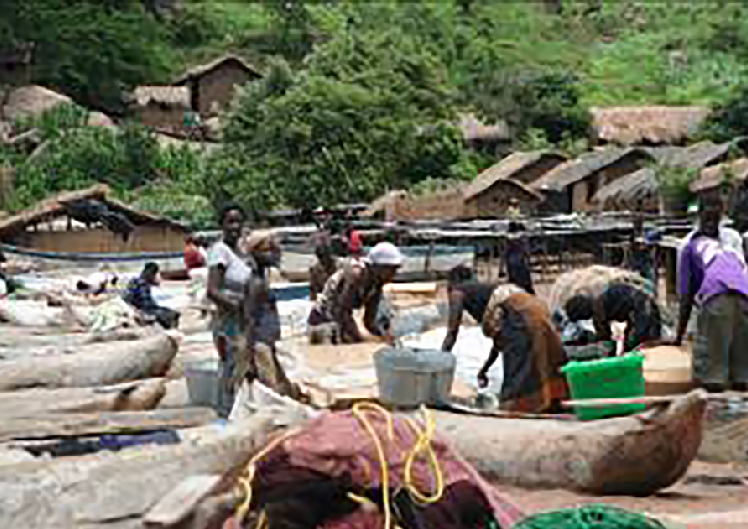
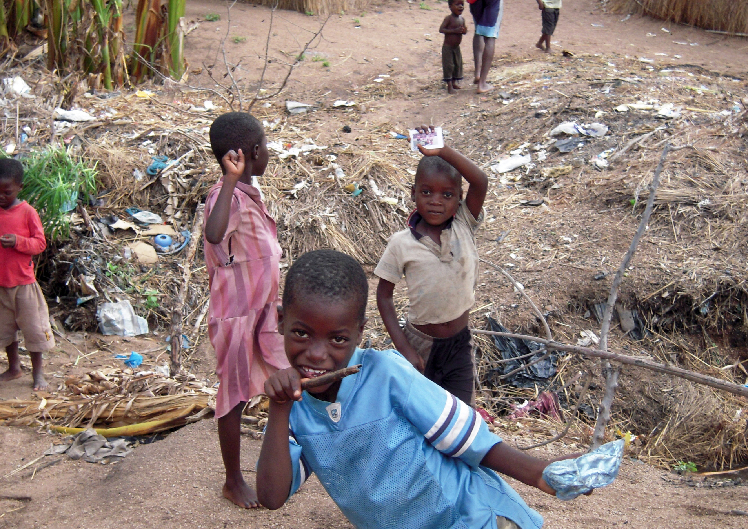
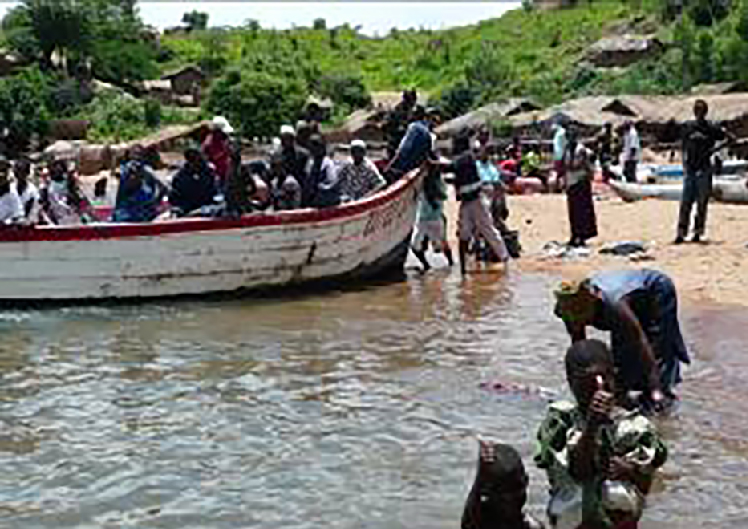
Mvunguti ⇔ Monkey Bay(hospital)= MWK300
Free Transport Coupons distributed= 842
Support Supplies: Condoms x approx. 500;
Mosquito Nets x 50
Upon this visit, we started our support activity for another village called Mvunguti. The village consists of 520 houses, and has a population of 6,000-7,000. Which means more than 10 people are living together in each house. 70-80% of the population makes their livings on fishery, but only limited amount of people own ships, so most of them are just helpers of ship-owning fishermen, which makes Mvunguti another village suffering from poverty.The village is structured within a narrow space surrounded by rocks, high population density, and extremely poor sanitary situation. Houses stand crowdedly along the lake shore, where mothers wash clothes, and toilets are a hole dug into the ground causing polluted water to soak deep underground. They had a few pumping wells, but whether its water is maintained to be safe for drinking is questionable.
We weren’t able to make any proper examination this time, but we definitely ought to check all states in details upon our next visit. (Examinations can’t be done very easily either. The place is secluded like a solitary island, and takes time in doing anything.)
This village obviously has no electricity either. In Malawi, electricity is only provided to the poles, it is their standard for each individual to purchase electricity lines and switches, and install electricity to their houses on their own. And the cost to do so is extremely expensive, so most of the people living in countryside & remote areas are unable to use electricity. Although even if you install electricity to your house, power goes out often, so you can’t have a decent life unless you have a private power generator. At any rate, this village doesn’t even have any electric poles to start with, so even if they could afford the cost, they can’t install electricity to their houses.
The biggest problem of this village is the fact that it is located at the lake shore and has no land route transportation. When someone gets sick, they have to pay an extremely expensive fee to ride a boat to get to the hospital in town, if not, then they only have the choices either to walk or have someone carry you through the rocky mountain route, or wait for death without being able to see any doctor… The fee for the boat is MWK400 for a return trip. Approximately JPY250. JPY250 is a lot of money for the people in Malawi considering the fact that most of the people are living on less than a dollar a day. Thus people scarcely are able to use the boat to get to the hospital. The nearest hospital is 10km of land distance in a straight line from Mvunguti. It is a bit too far away for a sick person to walk through treacherous mountain route.
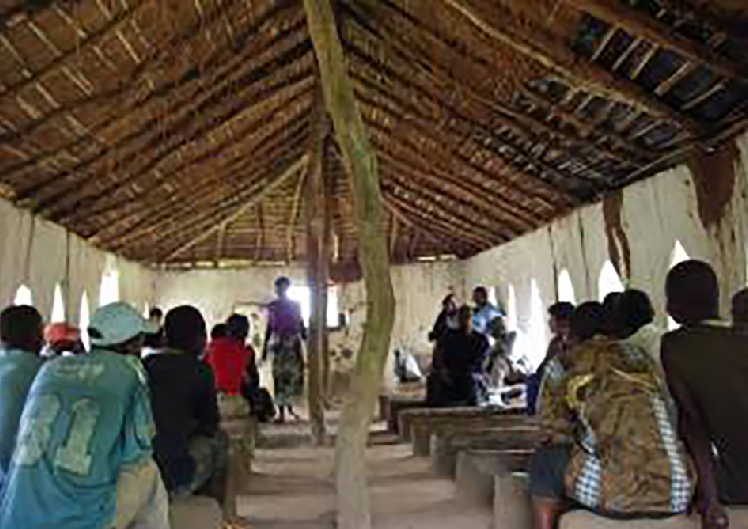
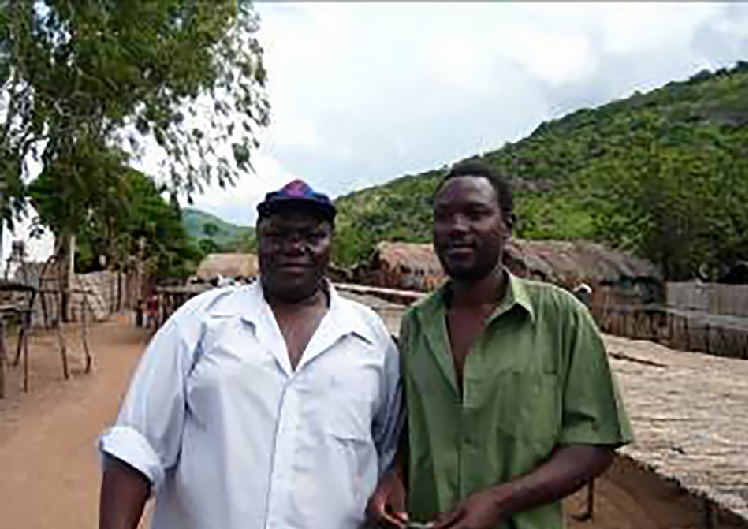
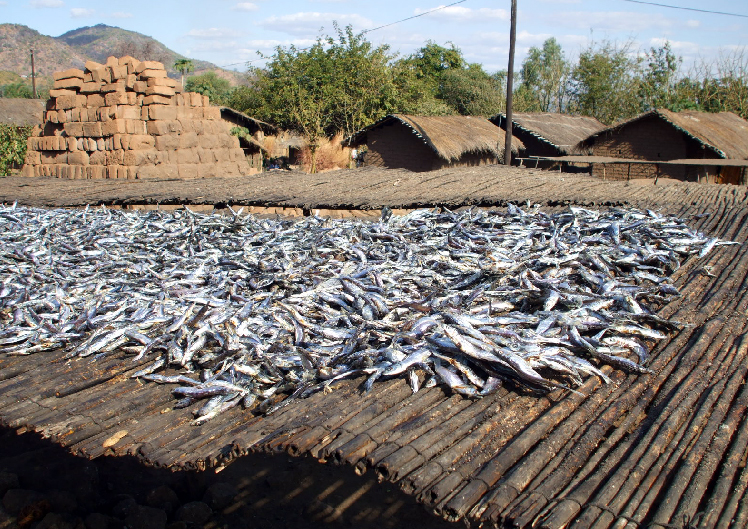
Mvunguti/VCT
We sponsored a 3 days of free VCT (HIV/AIDS blood test) in this village. We chartered a boat from our lodging in Chembe, it took us about 40 minutes to reach the village. We asked the lodge to make us lunch boxes, and took them with us along with a cooler box of drinks. There is no restaurant in Mvunguti, and no stores selling cold drinks since they don’t have electricity. Few stores at the lake side sell Fanta & Coke, but no mineral water available, and they are all warm. No one wants to drink warm Fanta & Coke under a burning sun. If you ask the local people if they want any drink, everyone would answer “Fanta” or “Coke.” At restaurants, they would order tea. And they put lots of sugar. A lot of people think that sweets=nutrition. I heard from a doctor at the hospital, that there actually are a lot of people with diabetes in Africa.
Local volunteers in this village is exceptionally brilliant, they have excellent understanding of the whole village, they quickly comprehended how our project & system works, worked extremely hard in calling out to the villagers and convincing them to take our free VCT, they even added a Chewa translation to our VCT flyers. As a result, a total of 200 people came to take the VCT in 3 days. The figure also tells the high level of consciousness the villagers have towards the epidemic.The result of the VCT showed 64 people being HIV positive. The number includes those who have already been diagnosed as HIV positive prior to our VCT, but nevertheless, the rate is high. In addition to that, due to fishery on season, most of the fishermen couldn’t make it to the VCT, which were the people we really wanted to use this opportunity.
In Malawi, a lot of possible HIV infections from fishermen are being reported. So in order to achieve an accurate figure of HIV positive, we need to have the fishermen to take the VCT. Regarding this VCT for fishermen, as I visited Dr. Mary Shawa, the head of AIDS/Health Department, following the VCT in Mvunguti, she agreed to speak with the fishermen’s association and require them to take the VCT. If all of the fishermen take the VCT, the true state of the HIV infection in Malawi should reveal itself. If such is really possible, then we definitely are up for considering whatever support we could give.
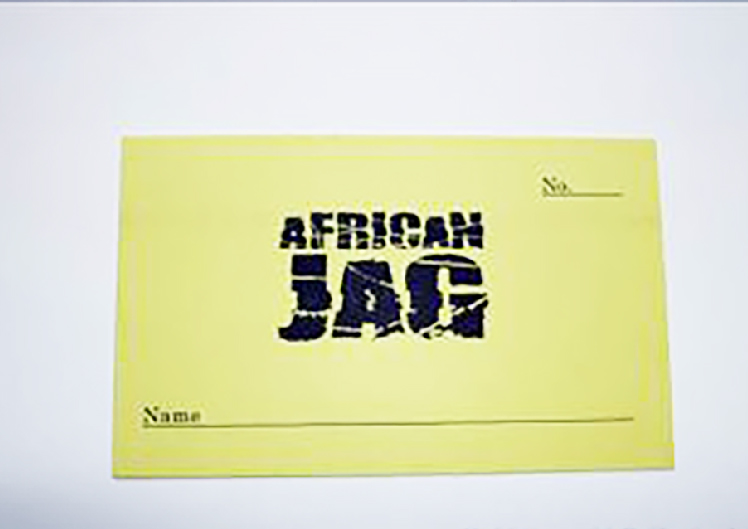
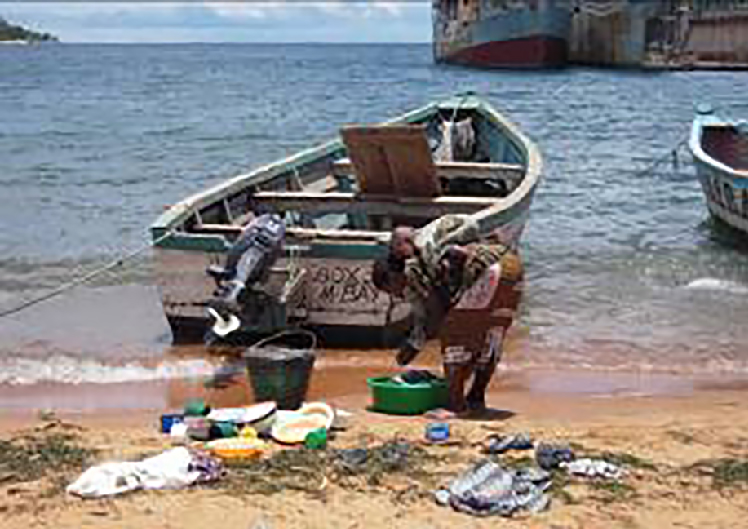
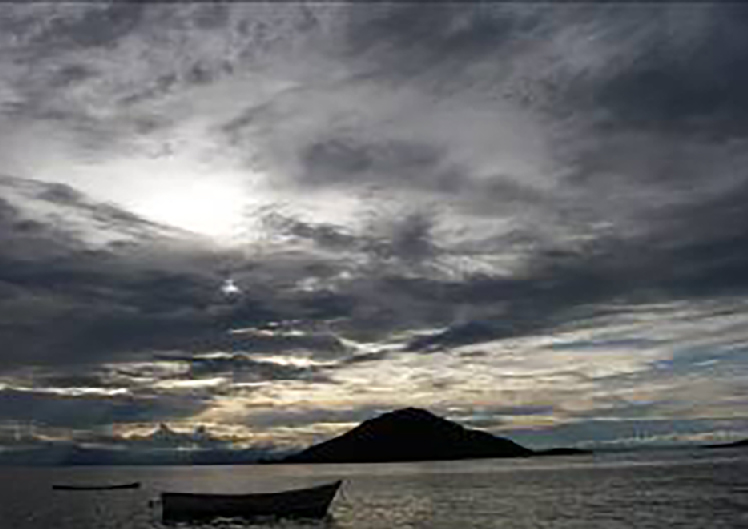
Mvunguti / Ways to Support
Our support system in Mvunguti works like this: To every person found to be HIV positive, we give a card to be called a “passport.” This passport enables a patient to attend free orientations for 3 times, and free transportations to the hospital to receive HIV medications for 6 times. In addition to that, for those who came to take our VCT this time, we have also allow people who becomes ill with other diseases (i.e. Cholera, Malaria) to use free transportations as well. In this support system, the poor people and patients at late stages of HIV have the highest priority. In Mvunguti, we also distributed a support supply of mosquito nets to 50 patients with HIV/AIDS higher than Stage 3. We only hope that this support system help the state of the village to improve, and to change the consciousness amongst the villagers…
Mvunguti / Our Future Support Plans…Please Give Us Your Contributions!!
With all the above said, we still feel it is mandatory for this village to have an emergency boat for sick people, unless a ground transport system is made. Especially considering the so-called “maternity problem” that a lot of the villagers mentioned to us. When labor starts in the middle of the night, they don’t even have the boat available to go to the hospital, they have to deliver their babies with no clean water or electricity which is resulting in losing so many lives…a tragic reality.It is clear to everyone that the best way is to make a road from the arterial road to the village, but our project wouldn’t be capable to do so right away. No such fund or knowledge to make any road. So this is what we came up with. A donation of boat named “African JAG.”
As we made a research, we found out that a wooden boat capable to carry 25 people costs around US2,500-US$3,000. Our current support system is costing us around US$2,000 for 7 months, and is also limited to 60 people + newly found HIV patients per month. If that’s the case, then we would be able to get a lot more people to go to the hospital if we donate a boat, and one of the local volunteer staffs could drive boats so boat transport in midnight hours would become possible too. Considering the fuel & maintenance fees, we probably wouldn’t be able to provide free ride for everyone except for those in fatalistic poverty, but should be able to reduce the charge to 1/4 of what they are currently asked for a ride. So African JAG’s next aim is to purchase a boat for Mvunguti. We ought to work even harder raising fund & donations. And we cordially ask for your contributions to support the village as well!!
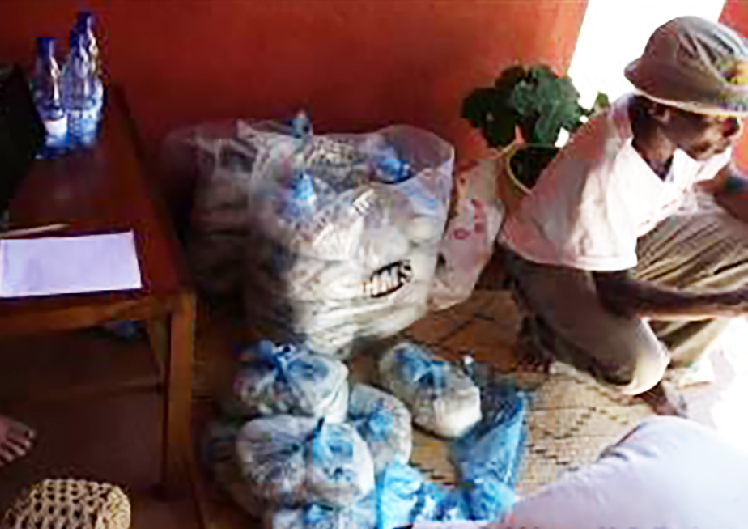
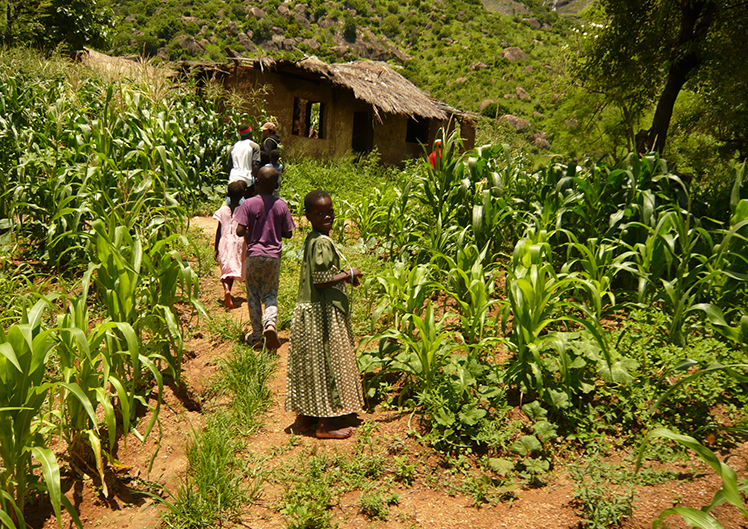
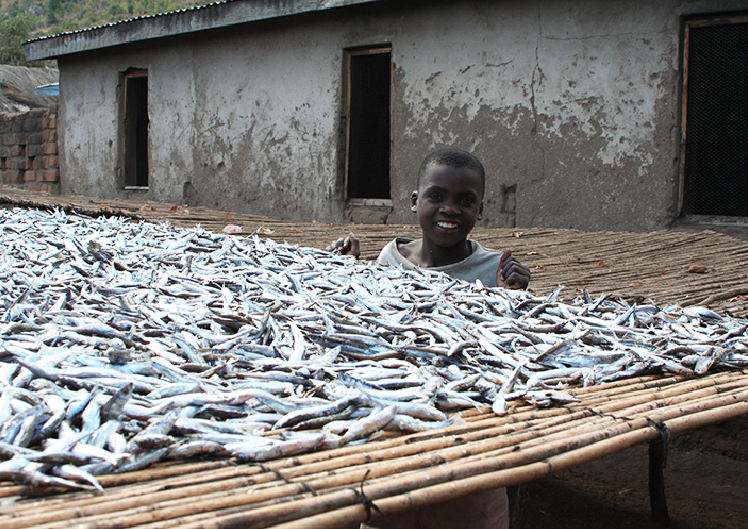
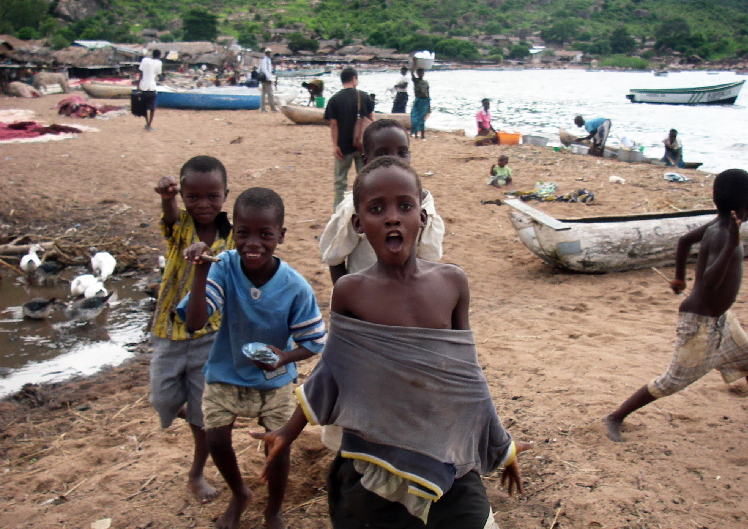
as usual, February and March see lack of food in poor districts, food prices make huge leap up, and makes it extremely difficult for people to secure food for the day, especially for families with ill persons. The dietary staple of Malawi is a food called “nshima” made of maze flour (corn flour), and poor people obviously eat them as their staple food. Harvest time is April to May. Currently, the government administers a system where they buy all maize from the farmers, and sell the maize only through their storages called ADMAC at a reasonable price in order to maintain stable stocks and to avoid inflation.
But in reality, maze disappears from ADMAC after January. There also are a lot of farmers selling their maze to the black market that offers much higher rate than the government, and just when ADMAC ran out of maize, the black market sell maze to retails stores at mad expensive prices. We went to a number of ADMAC upon our visit this time as well, but we couldn’t purchase any maze. So we had no choice but purchase at retail stores, but the prices were in figures that poor people would never be able to afford. Rice also becomes extremely expensive at this time of the year.
In addition to that, the growth of the maize in the area where we do our support activity is extremely bad. The fact that the area has less rainfall even in the rainy season has got a lot to do with it, but the main cause is the state of soil. Because they grow their crops on the same field every year, the soil becomes malnutrition. Chemical fertilizer is too expensive that people can’t afford to buy, and they have no knowledge on making organic fertilizers either.
If they are able to make organic fertilizer, the food situation should change drastically. As far as I see, Lake Malawi that makes up 1/3 of the country has a lot of fishes, and in every rainy season, because fishes rot before turning into dry fish, people throw the rotted fish into the lake, and I’m thinking those rotted fish should make a good organic fertilizer. Maze cobs and even weeds could also be used as well… I plan to ask some specialists for their comments & suggestions before our next visit to Malawi. If we don’t have money, we use our heads…that’s my theory.
At any rate, the current situation will only make the poor people suffer. Especially the AIDS patients. Even if they receive our support and are able to get proper medications and their conditions recover, if they can’t eat properly, they soon will be unable to take their medicine. Which will only bring them back to their original state. Medicine for AIDS is very strong, and has strong side-effects. Plus, if they don’t have physical strength, they can’t even work. We should think of ways to at least maintain a stable amount of food supplies for these people.
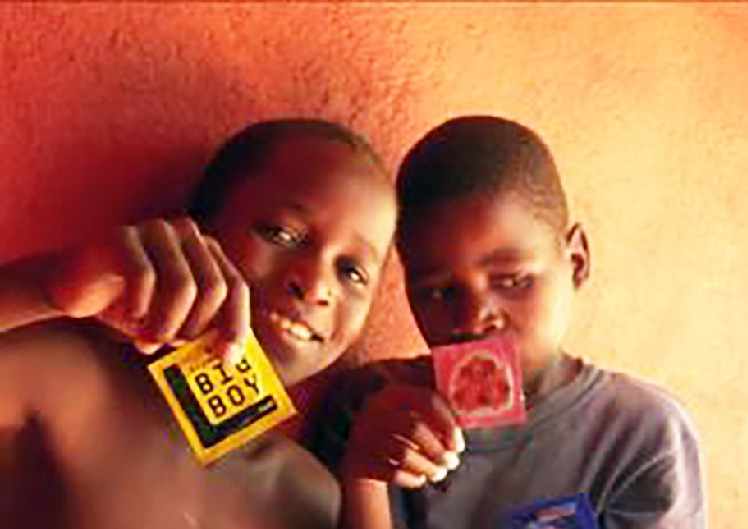
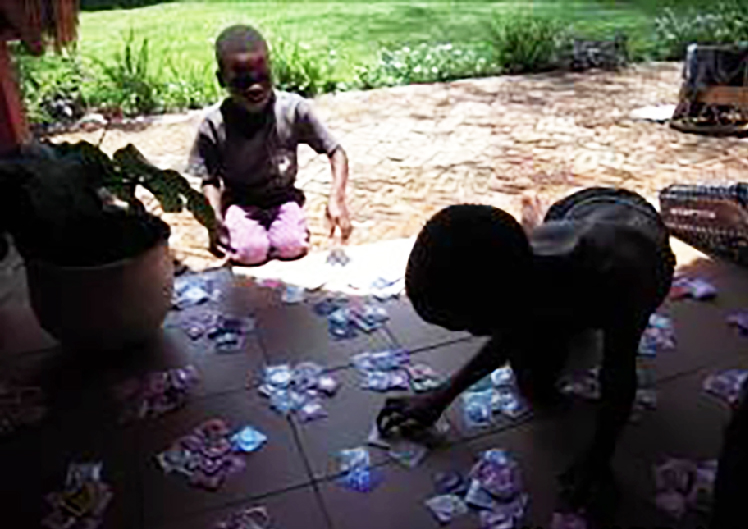
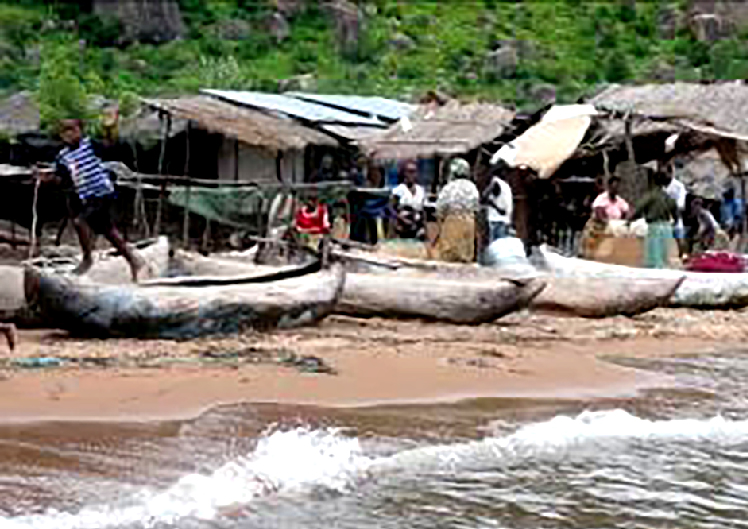
Once again, we distributed condoms made in Japan upon our VCT this time as we’ve done in all our past support activities. Japan-made condoms have been extremely (surprisingly) well-received in Malawi, lots of people came back the following day to receive more. During an interview we did with a villager in one of our past visits, the villager told us that the condoms being distributed for free in Malawi have too strong a smell of rubber, and uncomfortable, most of the people reject to use them.
Compared to the local give-away condoms, the Japan-made condoms have various nice fragrances, very comfortable, and actually made many people to say “if we are given this type of condoms, we definitely would like to use them.” This is Japan, the world’s top notch nation of technology.
From the facts and comments above, it could be said that if the quality of condoms improve, more men would use condoms, which could lead to a huge possibility of fundamental reduction on the infection rate of HIV/AIDS. We ought to have more people in wider area to monitor Japan-made condoms, and collect more comments upon our next visit.
If the result shows a great number of people in favor of Japan-made condoms, it should be a good idea to make Malawi-made condoms, using the local rubber trees, with technical support from condom manufacturers in Japan. It should not only inhibit the spread of HIV/AIDS epidemic, it should also become a huge industry & a source of income for Malawi.
They could even export their condoms to sub-Saharan countries where HIV/AIDS wreck havoc… As opposed to pouring the ODA (=our tax money) down the rathole, if they look at issues & realize points as such, support for Africa should become more meaningful, and be more fruitful.
FYI, the condoms we distribute are being collected by outcall service ladies in Kanagawa Prefecture (Japan). They enable us to take 1,500 - 2,000 condoms upon all our visits to Malawi, and we distribute them for free at the Clinic and the villages we support. They are making everyone happy. Huge thanks to all the outcall girls!!
Past Reports
※ Reproducing all or any part of the contents of this site is prohibited without author's permission.
